''Government in Crimea and Sevastopol shouldn’t be formed of newcomers''
Political scientist Igor Ryabov tells about tactical struggle for post-Ukrainian Crimea and mobilization resignations of officials of the Peninsula
Three years later after the ''Crimean Spring'', the two youngest subjects of the Russian Federation, Crimea and Sevastopol, continue to give to ''mainland'' Russia the news of varying degrees of positivity: the Accounts Chamber of the Russian Federation recognizes the implementation of the Federal target programme ''Development of Crimea and Sevastopol until 2020'' ineffective, the head of Crimea once again fired several ministers, Acting Governor of Sevastopol Dmitry Ovsyannikov is one of the last in the ranking of the governor's campaigns, the Crimean border builds up a queue of Ukrainian cars. Director General of the expert group ''The Crimean project'', Director of the research centre Industry and Society Igor Ryabov told in the interview with Realnoe Vremya why the split of the elites in Sevastopol is simulated, and why the tourism industry of the Peninsula does not correspond to the format ''all inclusive''.
There are Chaly and the others
You wrote in Facebook that the so-called ''split between the elites'' in Russia represents an ''organizational-activity game'', or in other words, a process moderated externally. Also, you wrote that in Crimea this game has being tested already for a long time. What are Crimean groupings that ''conflict'' within it?
I mean, first of all, not Crimea but Sevastopol as a separate region. In Sevastopol, the game is a struggle for the legacy of the '''Crimean Spring'' 2014. There is a group of Alexey Chaly, currently Deputy of the Legislative Assembly of Sevastopol, who presents himself as a true hero of the ''Crimean Spring'' (calling it ''Russian'' to highlight some separateness of Sevastopol from Crimea), celebrates each anniversary of the awarding him the title of ''people's mayor'' and shows that the real patriotic movement is being built particularly around him and his circle. Of course, it meets resistance because the idea of reunification with Russia in 2014 belonged not to a single individual but to all people. They do not accept the distinction between ''right'' and ''wrong'' patriots.
Sevastopol elite is being split on these grounds. Moreover, the struggle for post-Ukranian values has a fierce political character. In the result of this struggle of ''right'' and ''wrong'', many government bodies in the region has been divided into camps, and because of this Sevastopol cannot become a development city. Also, the Legislative Assembly has been divided almost in half, not according to party lines but on the basis of loyalty to the ''people's leader''.
The continuation to this story we see at the federal level. The salient feature of this ideological struggle is in ''correctness' of understanding of certain meanings: the meaning of the party in power, or patriotism, or certain monuments. Here is a recent example — the debate around interpretations of the meaning of the Civic Chamber: is it a body that fights for certain values or it is a body that represents layers of population? Is it a body that supports the government in its endeavours or opposes it?
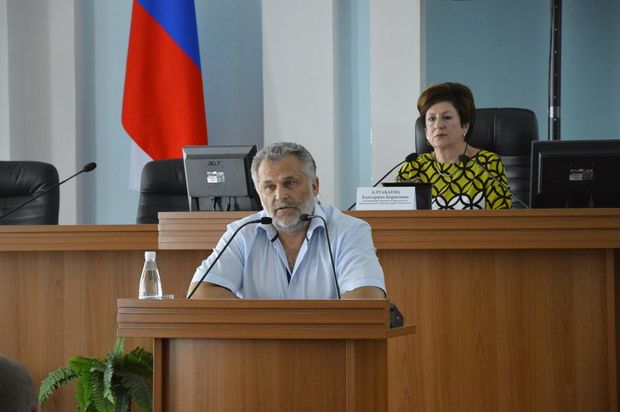
''There is a group of Alexey Chaly, currently Deputy of the Legislative Assembly of Sevastopol, who presents himself as a true hero of the ''Crimean Spring'' (calling it ''Russian'' to highlight some separateness of Sevastopol from Crimea), celebrates each anniversary of the awarding him the title of ''people's mayor'' and shows that the real patriotic movement is being built particularly around him and his circle.'' Photo: sevzakon.ru
Today's peculiarity of this ''split'' is that, in fact, they all are in the same camp. In Sevastopol the situation is the same. The split is within, for example, the party United Russia. Chaly, not being a member of UR, went to the elections to the Legislative Assembly with his team as ''Chaly's team for UR''. And UR was positioned as part of the team of Chaly. Today we see that one part of UR orients on the federal political council of the party, and the other — on particular leader.
Chaly's team successfully overthrew the governor of Sevastopol, turning him into a politically insignificant figure. One of the consequences of the struggle within the ''organizational-activity game'' is that new Acting Governor Dmitry Ovsyannikov instead of becoming a kind of moderator of these conflicts largely sided with Chaly's team and thus, as I see it, aggravated the situation.
Now this worsening by efforts of the federal centre is being hidden in the interests of the election campaign (the elections of the governor of Sevastopol will be held on 10 September 2017 — editor's note) and the latter is going well, but I think after the election the ''organizational-activity game'' will continue.
Hand of Moscow
It is still unclear — in whose interests does Chaly act? Who organizes this game and for what purpose?
Chaly, as a businessman, always acts in his own interests. But this internal conflict in Sevastopol is being used by political forces to destabilize the situation. In principle, this conflict is enough to spoil the impression of the results of March 2014 in relation to Sevastopol — because there were other expectations from the city, it could and must become a symbol of civil consolidation.
Who exactly uses this conflict? Ukrainian propagandists, the Russian opposition. It is being used not by ones who initiated the conflict but by those who benefit from it. They endlessly appeal to this story, saying that signs of the split prevent Sevastopol to develop, that it caused noticeable lag on FTP (the federal target programme ''Socially-economic development of the Republic of Crimea and Sevastopol until 2020'' — editor's note).
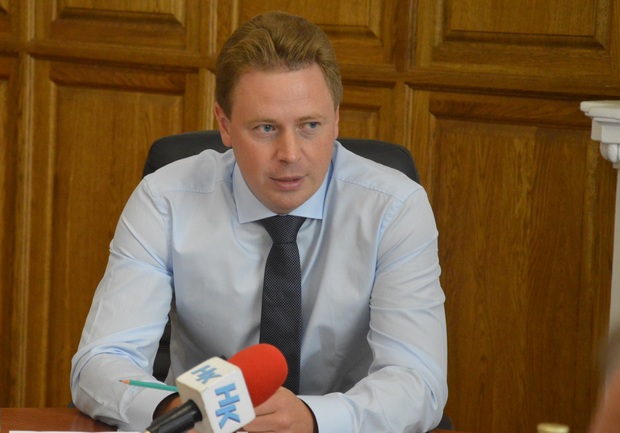
''Ovsyannikov should become an independent figure. Meanwhile, all his recent decisions on strategic issues have been taken together with Chaly.'' Photo: sevzakon.ru
So, Ovsyannikov will be elected in September, but the underlying confrontation in Sevastopol will continue, right?
I think that Ovsyannikov will have the burden of responsibility to handle this confrontation, to resolve this issue one way or another, to consolidate the city around the real power. Because the power in the city should belong to the government, not to some shadow ''people's'' figures, who through propaganda of close media, ideological allies, created an aureole of the virtual centre of decision-making on all key issues.
Ovsyannikov should become an independent figure. Meanwhile, all his recent decisions on strategic issues have been taken together with Chaly. For example, on the same general plan of the city. In the end, the general plan was delayed for two years. Deputy Prime Minister Kozak offered to finalize it jointly with the Ministry of Defence, whose opinion Chaly simply ignored. Proper laws and policies are accepted when they are supported by the consolidated society, elites, political forces, not by a virtual self-proclaimed elite group, like in this case.
Do you agree with the agency Minchenko Consulting, which claims that the image of the man sent from Moscow hinders Ovsyannikov?
Yes, I think it does. Rather the behaviour pattern of the man sent from Moscow. Today the key positions in the government of Sevastopol are taken by newcomers, Ovsyannikov did not appoint anyone from local staff. I know a few qualified high level officials who did not find a place in Sevastopol and who work in Crimea.
Why Sevastopol during the Ukrainian years was similar in spirit to Moscow and Russia? Because in the city there was a high level of personnel qualification, professionals in any field. There is a branch of the Moscow State University, very strong Sevastopol State University. Talent foundry did work well. Forming the government out of newcomers, ignoring excellent specialists inside Sevastopol, is a mistake. People don't accept it because the level of patriotism in Sevastopol is very high, they really consider themselves special. Of course, this Ovsyannikov's behaviour pattern plays against him.
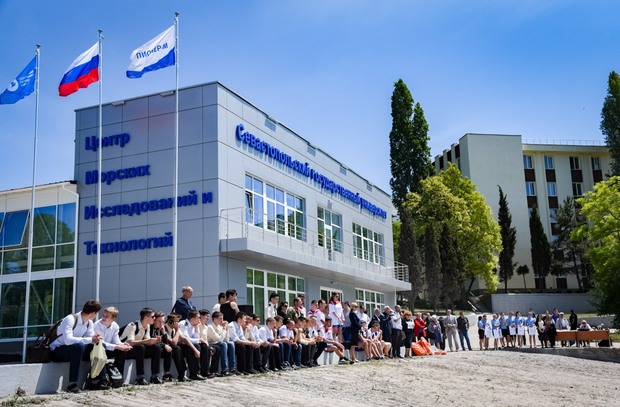
''Why Sevastopol during the Ukrainian years was similar in spirit to Moscow and Russia? Because in the city there was a high level of staff, professionals in any field. There is a branch of Moscow State University, very strong Sevastopol State University. The staff forge worked.'' Photo: ikrim.net
Translated from Ukrainian
What is the difference between the Ukrainian management culture and that we have to implement now?
Probably, the main difference is that Crimea being part of Ukraine, especially in the last ''Ukrainian'' years, did not have the right to make independent decisions. Despite the fact that there was the Constitution of the Autonomous Republic of Crimea, which, in fact, allowed the city council of the Republic to make a radical decision to secede from Ukraine, justifying it by the threat emanating from the Maidan. But in working order, Kiev centrally and consistently, sending various commands of purging, deprived Crimea of all powers to manage the Peninsula. Moreover, the Republic was deprived of subjectivity and economic tools that Kiev brought to Crimea. All the taxes earned by Crimean enterprises went to Kiev, there was introduced the clustering model, crushing the Crimean economy, which was also governed from Kiev, as well as all the infrastructure, transport and energy.
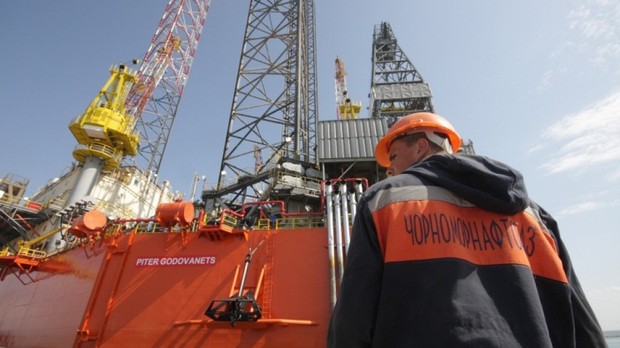
''Wine industry has revived, there were big investors. There is Chernomorneftegaz, which provides a significant share of the budget. When the energy sector is completed, it certainly will provide economic growth and jobs.'' Photo: ikrim.net
Now Crimea has the right to manage and decide who they want to be. Many say that Crimea in Russia is a subsidized region. But this is only because there are very serious investments in infrastructure and social sector. In other words, Russia gives a lot of money to Crimea because it needs them. But the revenue part of the budget of Crimea is several times more than the one that was in Ukraine. Economically, Crimea has become much more independent and stronger than it was before.
What are the sectors due to which there are increased revenues of Crimean budget you are talking about?
First of all, it is agriculture. In particular, the wine industry has revived, there were big investors. There is Chernomorneftegaz, which provides a significant share of the budget. When the energy sector is completed, it certainly will provide economic growth and jobs. That is, all the bonuses from the Federal target program Crimea has not received yet, this will occur after 2020.
Not all inclusive
And, of course, tourism. First of all, qualitative composition of visitors has changed. There are no independent tourists who used to come with their products from neighbouring Ukrainian regions anymore. Today, a spoiled, demanding, but economically independent tourist comes. Predominantly Russian — 8%. The rest are accustomed to Crimea Ukrainian citizens.
Is it true that now on the border with Ukraine on its part there are queues of automobile tourists?
It is true, but you should understand why it happened, because from the Ukrainian side there is no normal infrastructure of car passage. This is done consciously, passing to Crimea has deliberately been complicated. It is unsafe to cross, it is also a well-known story.
For example, from the Kerch ferry crossing there are no queues, and not because cars do not go, but because there is a well-organized passage.
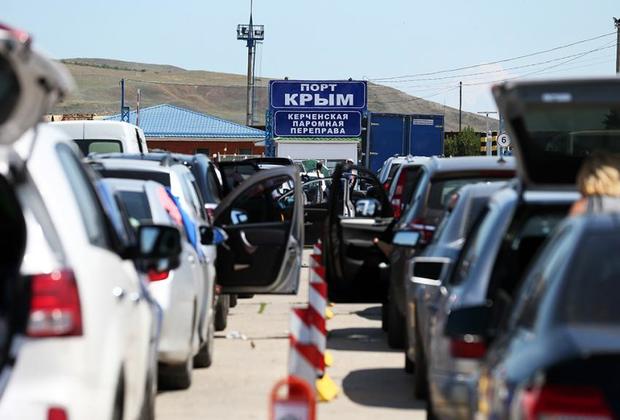
''From the Kerch ferry crossing there are no queues, not because cars do not go, but because there is a well-organized passage.'' Photo: vkpress.ru
You have said that tourists in Crimea have significantly changed with the advent of Russia. Does the level of Crimean hoteliers correspond? Earlier, Russian operators often complained about the uncivilized business with from their side.
Now I don't see that they complain. I observe with my own eyes how this recreation takes place. Everyone is happy, even those who used to travel across Europe. Then the question is, in order to properly prepare yourself: where to go in Crimea, what to do, what attractions to see, with whom to work with.
Many Russian companies send targeted tourists to resorts of Crimea. These resorts are booked, that means that they receive money that allow them to invest in development and improvement of service quality. The territory is being developed, new services are being introduced, and so forth, the quality of services is growing along with the economic growth of the industry.
There is another question. A number of Russian tour operators used to send tourists to Turkey and Egypt on the scheme ''all inclusive''. They tried to enter this market sector in Crimea, but there was no strategy for development of this system. Аew hotels work here. But Crimea is not for this, not for lying on the beach but for active tourism. The surrounding language environment allows the tourist to leave hotel territory.